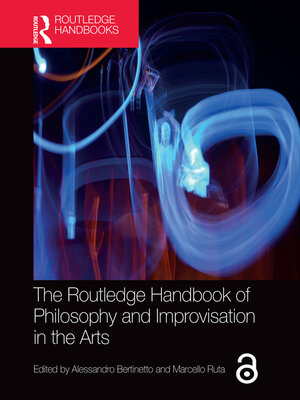The Routledge Handbook of Philosophy and Improvisation in the Arts
ebook ∣ Routledge Handbooks in Philosophy
By Alessandro Bertinetto

Sign up to save your library
With an OverDrive account, you can save your favorite libraries for at-a-glance information about availability. Find out more about OverDrive accounts.
Find this title in Libby, the library reading app by OverDrive.



Search for a digital library with this title
Title found at these libraries:
| Library Name | Distance |
|---|---|
| Loading... |
Over the last few decades, the notion of improvisation has enriched and dynamized research on traditional philosophies of music, theatre, dance, poetry, and even visual art. This Handbook offers readers an authoritative collection of accessible articles on the philosophy of improvisation, synthesizing and explaining various subjects and issues from the growing wave of journal articles and monographs in the field. Its 48 chapters, written specifically for this volume by an international team of scholars, are accessible for students and researchers alike.
The volume is organized into four main sections:
I Art and Improvisation: Theoretical Perspectives
II Art and Improvisation: Aesthetical, Ethical, and Political Perspectives
III Improvisation in Musical Practices
IV Improvisation in the Visual, Narrative, Dramatic, and Interactive Arts
Key Features:
- How can improvisation be defined and what is its role in different art forms?
- Can improvisation be perceived as such, and how can it be aesthetically evaluated?
- What is the relationship between improvisation and notions such as action, composition, expressivity, and authenticity?
- What is the ethical and political significance of improvisation?







